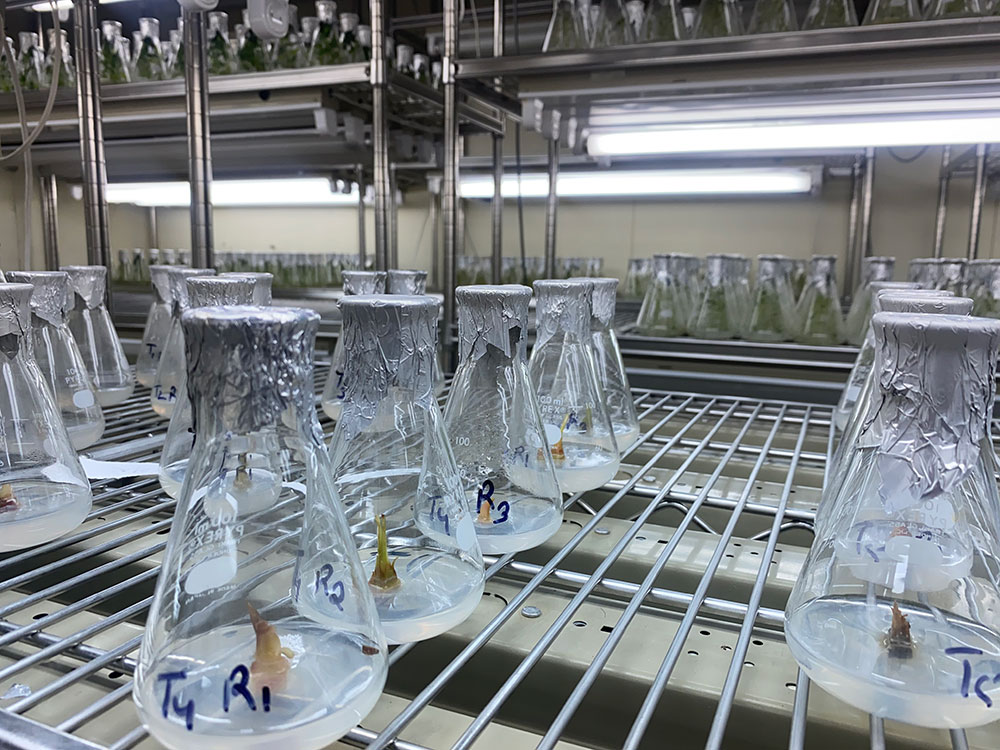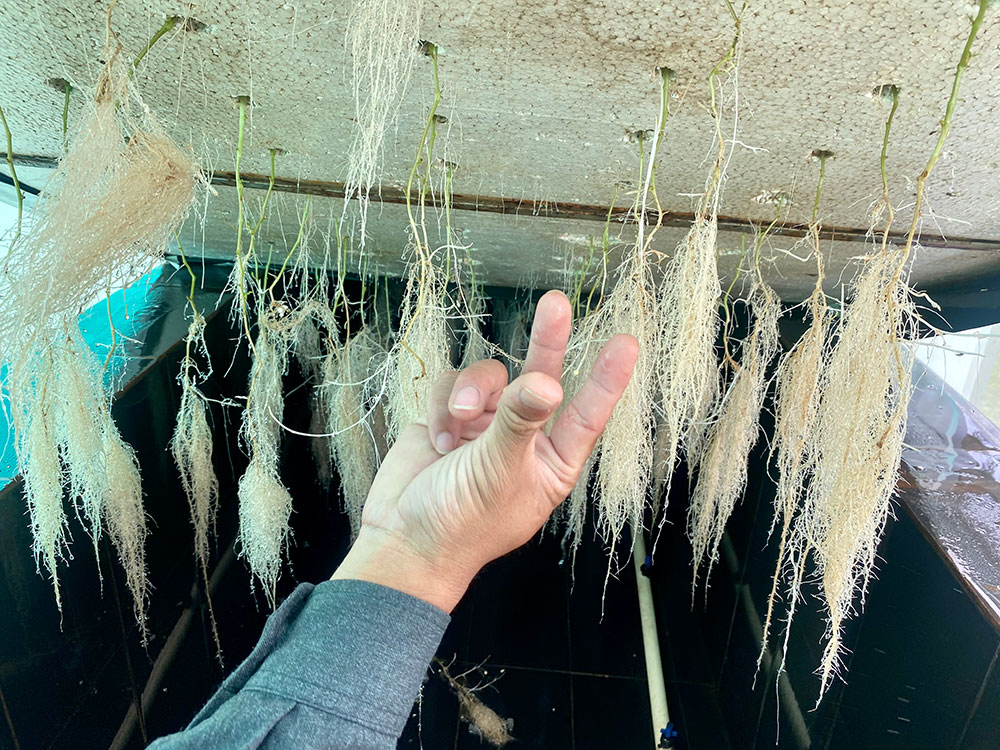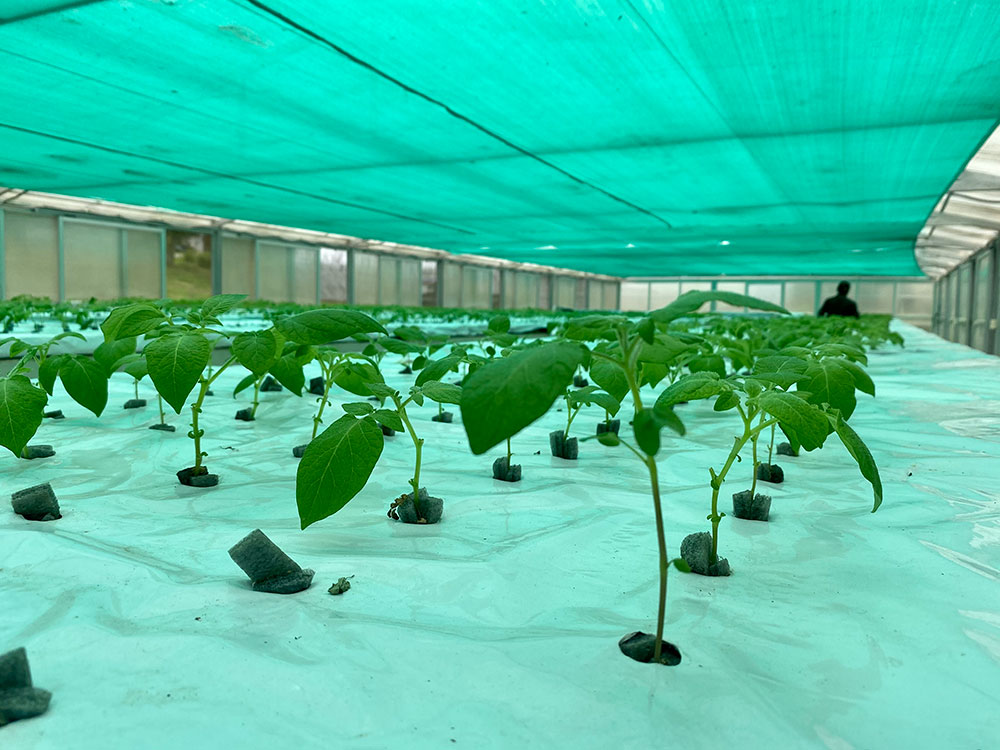Phub Dem | Paro
Is soil-free farming the future? All the sweat and toil to grow food is already becoming a thing of past. In Bhutan, especially, where average landholding is small, vertical farming (a way to grow and harvest crops on vertical shelves or towers rather than traditional, horizontal farming) makes all the more sense.
Augmenting technology, glass farming at the hilltop in National Seed Centre (NSC) in Paro does not involve dirt and requires very little water. It all takes place indoors, in a glasshouse and laboratory. There’s no soil beneath and the plants’ roots are sprayed with nutrient-rich mist.
Aeroponics is an indoor gardening practice where plants are grown and nourished by suspending their root structures in the air. The process requires regular spraying of nutrients in a water solution.
Aeroponics offers an efficient means to grow plants, including fruits and vegetables, without potting the plants to nutrient-rich soil. However, at the NSC, the technology is used to grow micro potato tubers, multiplied and inoculated using tissue culture.
According to the Programme Director of NSC, Sonam, this method is successfully producing potato mini-tubers.

Tissue culture is a process of crop breeding in a test tube under controlled and hygienic conditions
He said that disease-free potato tubers are produced through aeroponics and they are multiplied at the centre’s farm in Phobjikha. “After three generations, the tubers are disease-free and distributed to the farmers.”
Besides, he said that mass multiplication through tissue culture reduces the price of the tubers significantly, adding that the technique has a high multiplication rate.
Tissue culture is a process of crop breeding in a flask or test tube under controlled and hygienic conditions, exposing plant cells to nutrients, hormones and light.
As part of tissue culture initiation, tissue portion of a bud from a mother plant is sterilised and inoculated through nutrient media.
In a controlled environment, a single initiated tissue can be multiplied to several folds. Plants in indoor-farming facilities are grown in cells stacked for space savings and efficiency. Instead of the sun, LED lights are used to facilitate growth.
According to the Senior Laboratory officer of NSC, Yeshi Dorji, the seeds and plants produced through tissue culture are almost disease and pest resistant, helping farmers enjoy more quality yields.
He said that the laboratory could produce seeds and multiply them any time, adding that a single plant can produce thousands of seeds. “As it is difficult to obtain enough seedlings from the mother plant in fields, tissue culture is used.”
For instance, a banana mother plant can produce around five sucker plants in a year, but tissue culture can produce millions of suckers in limited space and time.
Cardamom seedlings are produced at the laboratory to address viral diseases. He said that tissue culture could eliminate viral issues in mother plants, adding that the plants are healthier.
In the absence of a reliable quality seed source, many growers reuse their farm-saved seeds or source from the local market. Such practice reduces the yield due to seed degeneration caused by viruses and diseases.

Micro potato tubers are grown into mini-tubers using aeroponics test tube
Yeshi Dorji said that disease-free and quality potato seeds are grown using tissue culture and aeroponic. Through tissue culture, micro tubers are produced, which are expanded into mini-tubers using aeroponics. “Tissue culture laboratory, which produces seedlings, is mandatory for aeroponic to function.”
The tissue culture laboratory at the centre currently produces tissue culture bananas, potatoes and cardamom. Banana and cardamom seedlings are directly transported to regional centres for hardening, whereas micro tubers of potatoes go aeroponic.
The officials at the seed centre are trying to do tissue culture of commercial fruit plants such as Kiwi, Avocado, Cardamom and Apple rootstock. However, without experts, the centre has not been able to do much.
Officials at the centre say that aeroponic is an effective and efficient way to grow plants as it requires less water and minimal space compared to traditional farming techniques.
While it has advantage over traditional farming, officials said no one was willing to take up aeroponic due to considerable investment.
But many believe that it could offer a solution for future crop production as climate change and soil erosion limit farmers’ farm productivity.
The aeroponic facility at NSC was constructed in 2014 with support from World Bank’s Decentralised Rural Development project. The National Potato Programme started aeroponic farming in 2011.
Edited by Jigme Wangchuk


